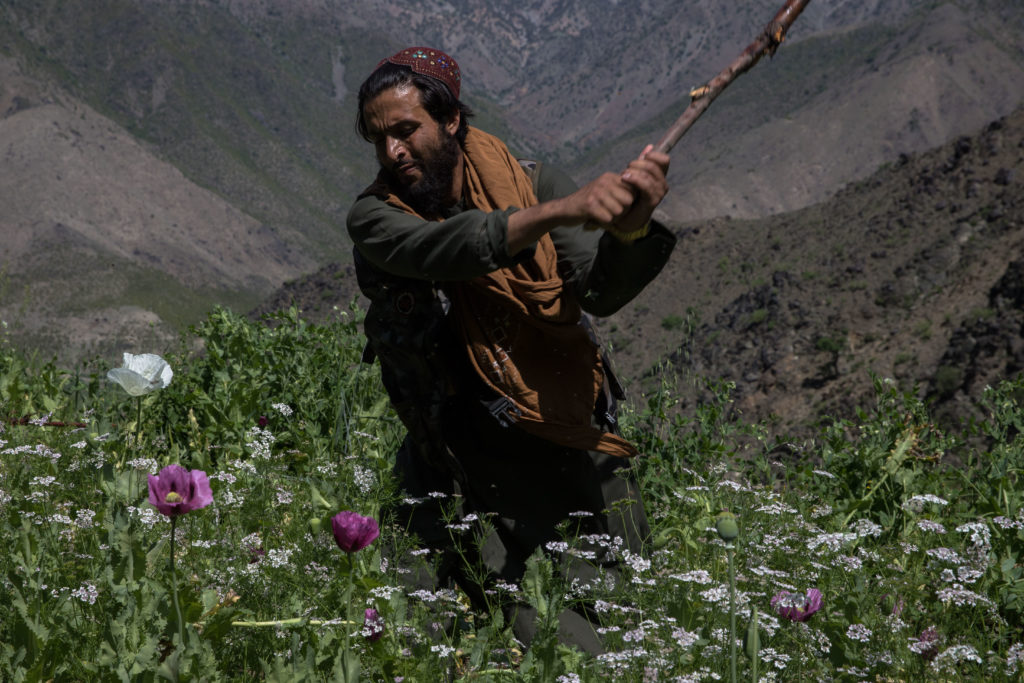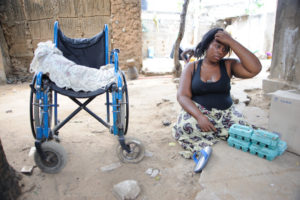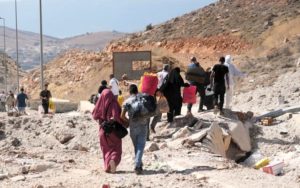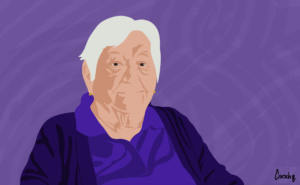An opportunity for the European Union
This article was originally published online in French by the Swiss newspaper Le Temps, on 15th July 2023. We are republishing the article here, in English, with the kind permission of the author.
On the 5th of April 2022, the Emir of the Islamic Emirate of Afghanistan, the leader of the Taliban, decreed a nationwide ban on poppy cultivation. Offenders face the destruction of their crops and heavy criminal penalties. In a report published a month ago, David Mansfield, an expert in illicit drugs in Afghanistan for three decades, estimates that the area under cultivation during the 2022/2023 season fell by 80%. In Helmand province, which usually produces around 50% of Afghanistan’s total opium output, he notes a 99% reduction in the area under poppy cultivation.
Twenty-two years earlier, in the spring of 2001, a few months before the fall of the first Islamic Emirate of Afghanistan, I was part of a monitoring mission invited by the Taliban to verify the absence of poppy cultivation in the areas they controlled at the time (i.e. the whole of the country except for the north-eastern provinces controlled by the Northern Alliance).
The mission consisted of representatives from the UNODC (the UN agency for combating illicit drugs and crime), USAID (the US government aid agency), the UK Foreign Office (FCO) and myself, sent by the European Commission.
We visited the provinces of Kandahar, Helmand —in particular the opium market at Sangin —, Nangarhar and Kunar. We found that poppy cultivation in these provinces had been reduced to a minimum, something we already knew from satellite images. Discussions with farmers informed us of how the Taliban had used mainly religious arguments, going from village to village, to convince them not to sow poppy seeds in autumn 2000.
At the time, we wondered about the motives behind such a ban by the authorities: a genuine religious reason, as drugs that cloud the mind are haram in Islam, or speculation on the price of opium? Above all, there was the question of the sustainability of such a strategy in the absence of compensation for landless farmers and small landowners. The war declared by the West at the end of 2001 against the jihadist movements harboured by the Taliban prevented any answer to these questions.
Today, we have a similar situation and similar questions. However, there are three major differences. Firstly, the decree banning poppy cultivation in April 2022 now applies to the whole of Afghanistan, which has been under Taliban control since the 15th of August 2021. Secondly, in 2022, the Taliban also dismantled most of the laboratories processing ephedrine — a plant that grows endemically in Afghanistan — into methamphetamine. Thirdly, on the 9th of March 2023, they banned the cultivation of hashish.

Once again, as we did in 2001, we can speculate on the motives behind these decisions. The official religious reason is perfectly in line with the current authorities’ aim of establishing a “true” Islamic society. Another reason may be linked to the scale and public health emergency represented by the 3.4 million drug addicts in Afghanistan (almost 10% of the population), including 1.4 million opium and heroin addicts, according to the UNODC. Finally, it cannot be ruled out that these bans on illicit drugs will be a strong element in the negotiations for recognition of the regime.
There is also a lot of talk about speculation on the price of opium being one of the main causes of the ban. It is an undeniable fact that the price of opium has risen very significantly since the Emir’s decree, but to consider the current strategy of fighting all-out against illicit drugs solely from this angle seems very simplistic in view of all the actions taken since April 2022.
More interesting is the question of sustainability. And this raises the question of the international community’s position. 80% of the opiates consumed worldwide are of Afghan origin, a figure that rises to 85% on the streets of European Union cities. Although the figures are not of the same order of magnitude for methamphetamine and hashish, their disappearance will also have a significant impact in Europe.
Today, Afghanistan’s donor countries have halted development aid and drastically reduced their humanitarian aid and aid for basic needs. Will they be able to meet the needs of the landless farmers and smallholders who are suffering and will continue to suffer if nothing is done to support them in their conversion to other crops?
Of course, this is politically difficult because the Taliban regime is not recognised, mainly because of their discriminatory policy towards women and girls, an attitude rightly decried by the entire international community.
But on a subject as important as illicit drugs, which is of as much concern to the international community as it is to the Taliban — the devastation caused among our populations, the major role played by Afghanistan — don’t we have an opportunity here?
Since the Taliban took power, donors have developed mechanisms to provide aid to Afghans without going through the Afghan government. Although European populations are among the first to be affected by this new development in the fight against illicit drugs, there has been no response from the EU or European governments acknowledging this positive step. It seems imperative, however, to discuss how we can support the landless farmers and small landowners affected by a strategy that will benefit us Europeans in the long term if it is maintained, by engaging in a constructive dialogue that can also lead to other subjects for the benefit of the entire Afghan population.
Jean-François Cautain is a former senior official of the EU. He was ambassador to Cambodia and recently to Pakistan. He worked in Afghanistan as a humanitarian worker during several periods between 1986 and 1999 and for the EU between 2001 and 2005. He is a member of UAI’s Taks Team on Afghanistan. He currently lives in Kabul.
The content is the author’s responsibility alone and does not necessarily reflect the views of United Against Inhumanity or any of its other members.











